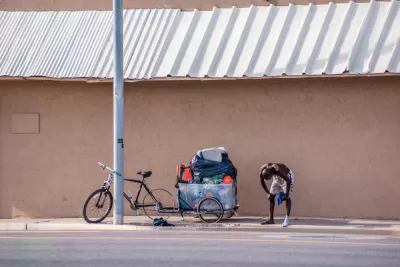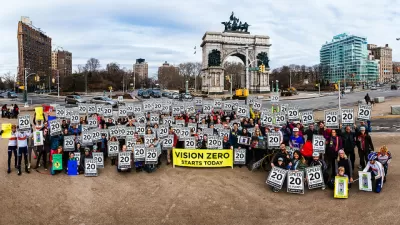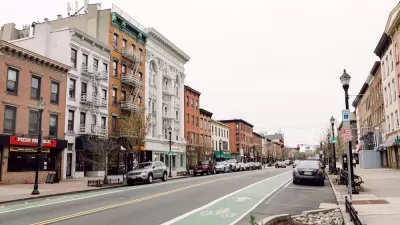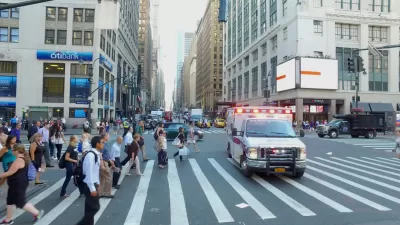Car-oriented politics keeps scoring wins in Phoenix.

"The Phoenix City Council for the first time ever discussed setting a goal to reduce pedestrian deaths — weeks after an Arizona Republic report that detailed the deadliest crossings — but then voted to kill the plan," according to an article by Agnel Phillip and Jessica Boehm.
The status of Vision Zero in Phoenix was still remarkably preliminary, given how many cities across the country have already adopted a policy, in name at least, to eliminate traffic fatalities. "Tuesday's vote would have directed city staff to assemble a framework of recommendations for reaching the goal of eliminating pedestrian deaths," according to Phillip and Boehm.
"Instead of seeking that research, several city council members said they were concerned that moving toward Vision Zero would force the city to adopt a strict protocol on all city streets that would lower speeds and, in turn, increase vehicle traffic congestion."
Phoenix has the highest fatality rate of any city in the state of Arizona over a population of 10,000. The City Council also recently voted to eliminate voter approved funding for a light rail extension planned for West Phoenix, and voters will get a chance to eliminate six planned light rail routes in an upcoming election. While public transit has been suffering in the local political scene, planners have been working to allow new density and building heights to the city's downtown core, so Phoenix will continue to be a location to watch the a confrontation between the shifting dynamics of planning best practices and the realities of urban politics in newer cities in the western United States.
FULL STORY: Phoenix officials vote against developing plan to eliminate roadway deaths

Alabama: Trump Terminates Settlements for Black Communities Harmed By Raw Sewage
Trump deemed the landmark civil rights agreement “illegal DEI and environmental justice policy.”

Study: Maui’s Plan to Convert Vacation Rentals to Long-Term Housing Could Cause Nearly $1 Billion Economic Loss
The plan would reduce visitor accommodation by 25% resulting in 1,900 jobs lost.

Planetizen Federal Action Tracker
A weekly monitor of how Trump’s orders and actions are impacting planners and planning in America.

Waymo Gets Permission to Map SF’s Market Street
If allowed to operate on the traffic-restricted street, Waymo’s autonomous taxis would have a leg up over ride-hailing competitors — and counter the city’s efforts to grow bike and pedestrian on the thoroughfare.

Parklet Symposium Highlights the Success of Shared Spaces
Parklets got a boost during the Covid-19 pandemic, when the concept was translated to outdoor dining programs that offered restaurants a lifeline during the shutdown.

Federal Homelessness Agency Places Entire Staff on Leave
The U.S. Interagency Council on Homelessness is the only federal agency dedicated to preventing and ending homelessness.
Urban Design for Planners 1: Software Tools
This six-course series explores essential urban design concepts using open source software and equips planners with the tools they need to participate fully in the urban design process.
Planning for Universal Design
Learn the tools for implementing Universal Design in planning regulations.
Caltrans
Smith Gee Studio
Institute for Housing and Urban Development Studies (IHS)
City of Grandview
Harvard GSD Executive Education
Toledo-Lucas County Plan Commissions
Salt Lake City
NYU Wagner Graduate School of Public Service





























